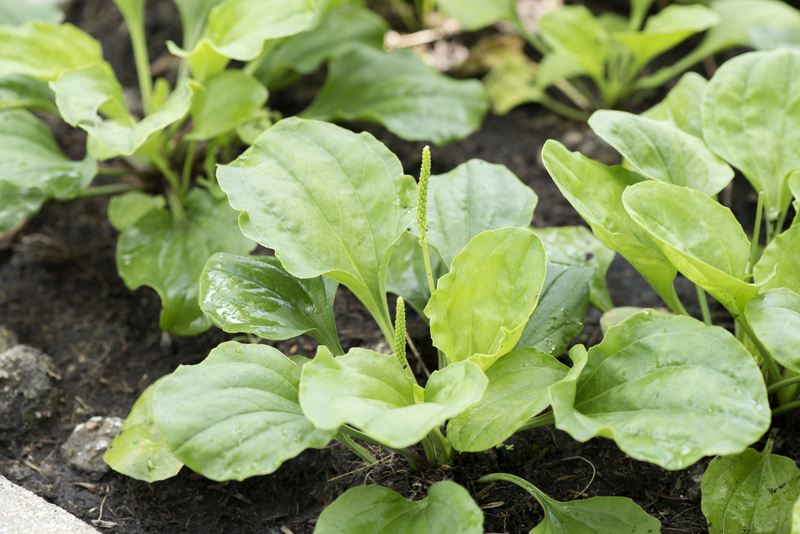Three Critical Tips to Improve Your Weed Control
Posted on 25/08/2025
Three Critical Tips to Improve Your Weed Control
Are weeds taking over your garden, lawn, or landscape? If you're struggling with unwelcome plants, you're not alone. Weed control is a challenge faced by homeowners, hobby gardeners, and professional landscapers alike. In this comprehensive guide, we'll share three crucial tips to improve your weed control and achieve the healthy, vibrant, and weed-free space you desire.
Understanding the Basics of Weed Control
Effective weed control requires more than randomly pulling out plants or applying chemical sprays. To properly manage weeds, it's essential to understand:
- The types of weeds you're dealing with (annual, biennial, or perennial)
- The life cycle of weeds (when and how they grow, reproduce, and spread)
- Your ecosystem (soil health, climate, and surrounding vegetation)

Tip 1: Prioritize Prevention for Effective Weed Management
It's often said that the best cure is prevention, and this is especially true when it comes to weed control. Preventing weeds from taking hold in the first place is more efficient and less labor-intensive than battling established infestations.
1. Maintain Dense, Healthy Vegetation
- Encourage a thick lawn or lush garden beds: Healthy plants act as a natural barrier against weeds by shading soil and competing for nutrients and water.
- Reseed bare patches: If you notice thin areas or bare soil, reseed promptly to prevent weed seeds from gaining a foothold.
2. Use Mulch Generously
Mulching is one of the most effective organic weed control methods. A layer of mulch (organic or inorganic) inhibits weed germination, conserves soil moisture, and improves soil quality.
- Organic mulch options: Shredded bark, straw, leaf litter, or compost.
- Inorganic mulch options: Landscape fabric, gravel, or rubber mulch.
3. Smart Plant Spacing
Don't give weeds room to grow! By properly spacing your plants, you can maximize ground coverage and outcompete many weed species.
Tip 2: Pull and Remove Weeds at the Right Time
When it comes to managing weeds, timing and technique are everything. Manual weed removal can be highly effective if done correctly and consistently.
1. Remove Weeds When They're Young
Young weeds are easier to pull and less likely to have developed extensive root systems, making early removal far easier and more effective.
- Catch them before they go to seed: This prevents hundreds (or thousands) of new weeds from popping up in the future.
- Use the right tool: Invest in a sturdy hoe, hand weeder, or dandelion puller for optimal results.
2. Water Before You Weed
Moist soil makes weed removal less strenuous and less likely to break roots, which can lead to regrowth.
3. Target the Roots
- Pull slowly and steadily to remove as much of the root system as possible.
- For taproot weeds (like dandelions, thistles, and dock), use a weeding fork or knife to loosen the soil around the base.
Tip 3: Choose the Right Weed Control Products and Techniques
There's a vast array of weed-killing products and techniques available, but not all are created equal. Choosing the ideal method for your property type and weed species can dramatically improve weed control effectiveness.
1. Organic Weed Control Options
- Vinegar, salt, and boiling water: These non-toxic solutions can be applied directly to weeds in hard surfaces, like driveways and patios.
- Corn gluten meal: This natural pre-emergent inhibits seed germination, making it a safe choice for lawns and gardens.
- Flame weeding: Special torches can be used to scorch and kill young weeds without chemicals. Be cautious and use it only in safe, non-flammable conditions.
2. Chemical Weed Killers
- Selective herbicides: Target specific weed types (e.g., broadleaf or grassy weeds) without harming desirable plants.
- Non-selective herbicides: Kill all plant growth and should be used with care around ornamental plants and lawns.
- Pre-emergent herbicides: Stop weed seeds from germinating. Apply early in the growing season for best results.
Important: Always follow product labels closely and use the minimum effective dose to protect pollinators, pets, and beneficial insects.
3. Physical Barriers and Advanced Techniques
- Landscape fabric: Used under mulch or stone to prevent weed growth in flower beds or between vegetable rows.
- Solarization: Covering soil with clear plastic during hot months can "cook" weed seeds and pathogens out of the soil.
Common Weed Control Mistakes to Avoid
- Ignoring early weed growth: Allowing weeds to mature and go to seed creates more work in the future.
- Improper herbicide use: Overuse or incorrect application can damage desired plants and encourage resistant weed populations.
- Relying only on one method: Integrated weed management, which combines several techniques, is always more effective.
Sustainable Weed Control: Eco-Friendly Practices
Sustainable weed management ensures the health of your lawn and garden while protecting beneficial insects, pollinators, and soil life. Here are some eco-friendly weed control strategies to consider:
- Hand weeding and hoeing: Old-fashioned but incredibly effective, especially when combined with mulching.
- Mulching with recycled materials: Newspaper or cardboard layers beneath mulch can reduce weeds while decomposing safely.
- Plant groundcovers or dense perennials: These suppress weeds naturally and add beauty to your landscape.
Companion Planting
Some plants help repel weeds naturally. Planting certain flowers or herbs alongside vegetables can create a natural weed barrier. For example:
- Marigolds
- Clover
- Thyme
Frequently Asked Questions about Weed Control
-
What's the best time to apply weed killers?
The ideal time is early in the growing season, when weeds are small and most susceptible. -
How can I prevent weeds in my vegetable garden?
Use mulch, practice crop rotation, and plant cover crops during the off-season to smother weeds. -
Is organic weed control as effective as chemical methods?
Yes--especially for prevention and when using a combination of techniques. It may take more effort but results in healthier soil over the long term.

Integrating Your Weed Control Strategy
The key to weed management is consistency and diversity. By integrating several weed control strategies, you'll create resilient, weed-resistant lawns and gardens. Here's a sample integrated approach:
- Start the season with pre-emergent herbicides or corn gluten meal to prevent weed seeds from sprouting.
- Lay down a thick layer of mulch in all planting beds.
- Regularly inspect your landscape, spot-treat and remove weeds as soon as you see them.
- Reseed and reseed bare lawn patches quickly to keep the turf dense.
Conclusion: Take Charge of Your Landscape with Smart Weed Control
Improving your weed control is about prevention, smart removal, and the right combination of products and techniques. With diligence and these three critical tips, you can maintain a lush, healthy, and beautiful outdoor space all season long.
Remember: Effective weed control is an ongoing effort, but with consistent care and the right methods, you'll enjoy a stunning, weed-free garden that's the envy of the neighborhood!
Start your weed control journey today and see the difference!
If you found these weed control tips helpful, share this article with fellow gardeners or bookmark it for future reference. For more smart gardening strategies and solutions, subscribe to our newsletter!



